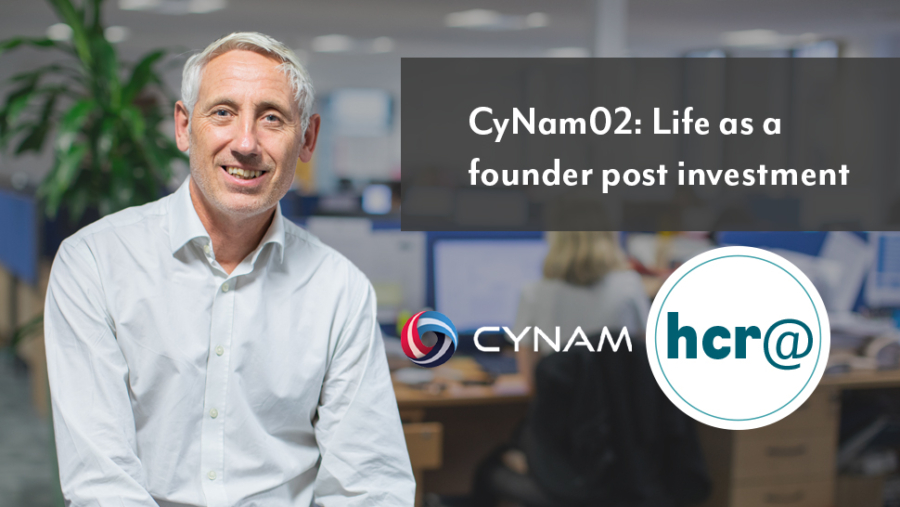

Tim Ward, who heads the Corporate team at HCR’s Cheltenham office, was recently invited to CyNamInvest02 as a guest speaker alongside founders, investors and entrepreneurs to share their investment journeys. It was an evening full of insightful discussion and more questions followed the event; here, Tim gives his answers across a range of topics.
When should you start thinking about creating an employee options pool?
It is never too early – if the business is successful and its value increases, so do the cost of options, but bear in mind there is a two-year qualifying period to get the tax break. An employee options pool attracts the key staff without you having to pay bonuses and links them to the right objectives that will help grow the business and its value. You should put aside what is agreed with your investor – possibly up to 15% – and maybe grant these over time as and when you recruit the right people or those you have, have proven their worth.
At what stage should founders and management teams start thinking about the next funding round or exit?
With so much uncertainty in the current climate, it is always better to be able to turn cash down than be desperate for it – if you are, you will never attract the best terms. Before exiting, you need to have a growth plan and be ready to progress it – you don’t want to receive offers without an understanding or agreement as to what can be done. So before you close a round, you should be preparing for the next.
How should investors be supportive in a rough patch? What to do if you have a rough patch?
It depends on the terms agreed, but founders should not be so onerous that they give an investor ultimate control at an early-stage business. Hiding issues will break trust so if something isn’t working, explain why and work collaboratively. I have often seen investors push out timeframes and put in a short term cashflow loan – this may leave founders diluted for the interim but they can always agree a follow-on i.e., if there is emergency funding to invest in further down the line and on the same terms.
What sort of due diligence will investors do on founders and what should you do on investors?
Investors, if sophisticated, will ask you to warrant a questionnaire so do not hide mistakes and bad deals – these will be known and if they find out about it, it can not only break the trust but trigger legal consequences. For founders, talk to other companies who have also received investment and ask candid questions. When speaking with investors directly, establish how supportive they can be, what doors they can open and who can they introduce you to. It’s important to game plan different outcomes at the outset.
What makes cybersecurity unique compared to other investments say in Ecommerce?
The cybersecurity market is a growing one, especially in a technology-driven business society – accelerated by the pandemic – where advancements in tech are growing exponentially. Investing in cybersecurity is certainly a necessary step and as for founders consider a) that cybersecurity is a specialist narrow field so produce has to be focused and b) how you can be different in a crowded space of providers.










